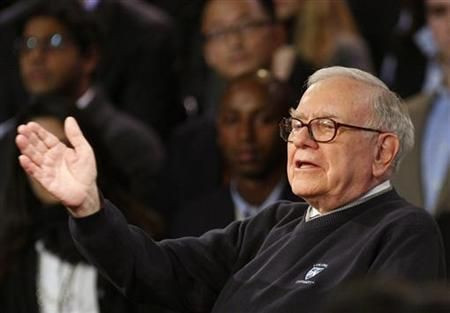Can US Estate Tax Avert The Fiscal Cliff? These Rich Progressives Think So

United by the belief that a modest redistribution of wealth is a hallmark of the American vision for prosperity, roughly three dozen of the nation’s most affluent citizens are proposing a simple way Congress can preserve spending for critical social safety net programs: Raise their taxes.
A coalition that includes former President Jimmy Carter, Warren Buffet and Abigail Disney, an heiress of the Walt Disney fortune, have signed onto a petition launched by the progressive group Responsible Wealth that asks Congress and the White House to raise the estate tax as a way to provide additional revenue for the federal budget.
“As individuals and families that have benefited most significantly from public investments and a strong society, we are proud to have the opportunity to contribute back to the country that helped to make our success possible. We urge Congress to pass a strong estate tax,” the coalition said in a statement.
The group is calling for the rate to rise from a top level of 35 percent, to a minimum of 45 percent that would max out at 55 percent for the richest of the rich. It would also cut the current estate tax exemption from about $5 million a person to $2 million, a reduction they insist anyone who actually qualifies for the tax could certainly afford.
Disney, in a conference call with reporters Tuesday, said she and other people in her income bracket have certainly had several advantages – and cash infusions – that makes up for whatever they might lose with a higher inheritance tax. The filmmaker and philanthropist, who stressed that majority of her income comes from assets in Disney stock, highlighted – as many others have – that her family’s fortune would not have arisen without the assistance they received from a federal government that stressed progressive taxation and public education.
“We need to challenge the assumption that people only fight for their own class,” said Disney, who is a granddaughter of Roy O. Disney, the co-founder of the Walt Disney Corporation. “My family built a fortune with the help of, not in spite of, the American system.”
That sentiment was echoed by other supporters such as Richard Rockefeller, a great-grandson of American oil magnate John D. Rockefeller, and John C. Boyle, the founder of the investment management corporation The Vanguard Group.
“Some days I can’t see why this isn’t clear to everyone, particularly people of wealth,” Rockefeller said.
While the battle over averting the looming fiscal cliff has primarily revolved around either raising income taxes on the wealthy or entitlement cuts, the estate tax is a potential source of enormous revenue. The tax is imposed on the transfer of taxable estate of a deceased person, in cases when inheritances surpass the current cap of $5 million.
The estate tax was reduced early in the Bush administration and then repealed altogether for a brief period in 2010, before being reinstated with a rate of 35 percent. But without congressional action, it will revert to its pre-2001 regulations in January -- which, with a much lower cap of $1 million and a rate topping out at 55 percent, is a more liberal policy than what Responsible Wealth is proposing.
A minuscule percentage of the U.S. population – about 4,000 people – are affected by the estate tax. The tariff raised about $10 billion from 3,300 deaths in 2011, according to the Tax Policy Center. Instituting a higher rate and lower cap could raise billions more in revenue; for instance, the tax center reports a $1 million exemption at a 55 percent rate would raise an estimated $40 billion in 2013, while the current policy would raise about a third of that amount.
As of now, the White House has called for a $3.5 million exemption and 45 percent rate, while some Senate Democrats have suggested extending the current estate tax policy.
© Copyright IBTimes 2024. All rights reserved.





















